What are the best security measures for your house? Tech experts and celebrity bodyguards reveal the 7 security must-haves – some may surprise you
Experts reveal the security items they have at home and highly recommend

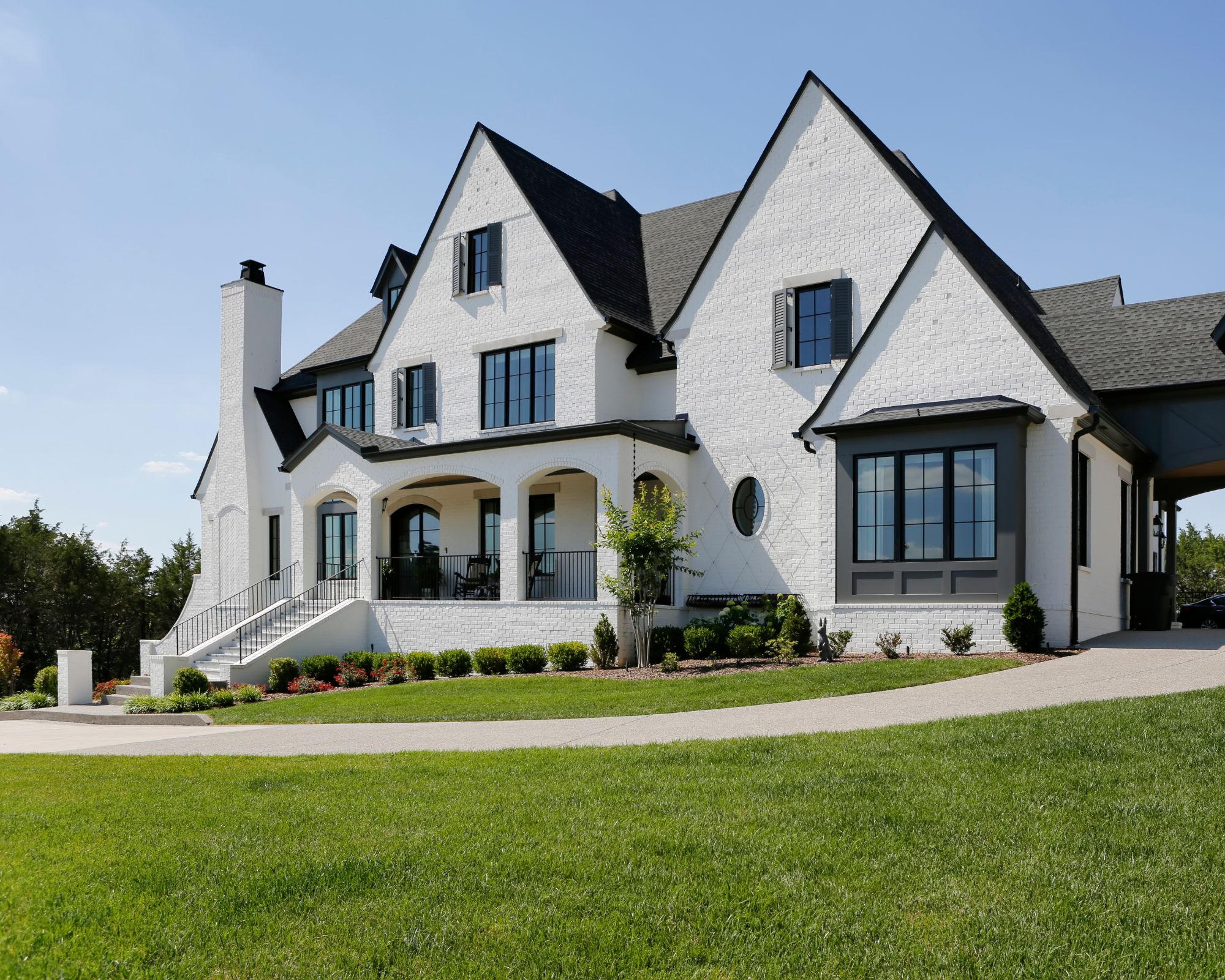
Keeping your home safe from intruders is a priority but with an entire industry dedicated to sell, sell, sell high-tech security measures to you what are the ones really worth investing in?
While it is easily possible to spend thousands of dollars turning your house into a fortress, you don't have to empty your bank balance in order to deter intruders and feel safe at home. We asked a wide range of security experts for their top seven home-security picks and the last one surprised us.
There are plenty of smaller home security tips you can employ with big impact, and these are sure to make a huge difference to how well you defend your property.
The pros' top best home security measures
There are lots of ways to improve how secure your home is, from those that cost very little to systems that require a considerable financial output. The key lies in tailoring whatever measures you put into place to suit your home and your lifestyle, whether you are looking at how to secure your home for the holidays, or because you work away from home regularly.
Jeff Ketelaars co-founder at Security Guards Only explains, 'Burglars are going to take the path of least resistance when trying to invade your home, so you want to stay one step ahead of them and know the vulnerabilities, plus ins and outs of your home better than they ever could. Once you make a note of all potentially weak areas, you can then proceed to invest in the right tools and upgrades to protect your home."
1. Get an intruder alarm fitted
We'll start with the most obvious, and one of the best ways to burglar proof a front door and your home: intruder alarms.
'Get an intruder alarm system installed in your home and always set it. Even at night and when you are popping out for five minutes,' says self defense, personal safety and violence prevention expert Julie Waite of Streetwise Defence. "This is the number one thing you can do to keep your home safe.
Design expertise in your inbox – from inspiring decorating ideas and beautiful celebrity homes to practical gardening advice and shopping round-ups.
'Ensure you can set it when you are at home in bed at night, as well as when you go out,' continues Julie. 'We recommend a combination of motion sensors and shock sensors on windows and doors. That way you can have different zones and options for setting your alarm.'
The SimpliSafe 105dB Auxiliary Siren from Amazon will scare off intruders as well as alerting the neighbors and emergency responders with a 105 dB siren, which is very loud - as loud as a helicopter hovering nearby.
2. Use lighting to deter intruders
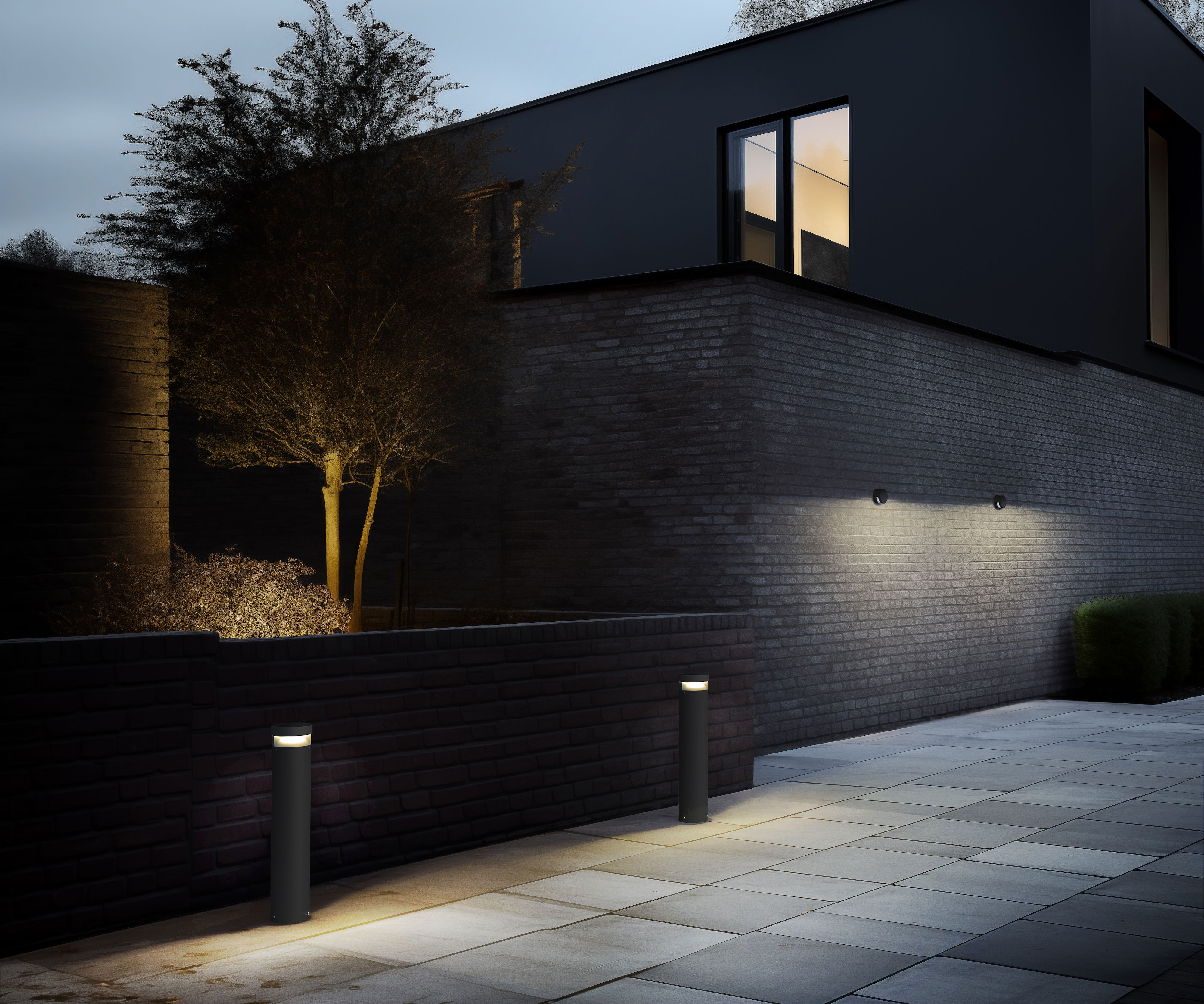
Intruders love nothing more than being invisible so if you want to put them off snooping around your property, anything that highlights their presence is a good idea. Make sure your front yard lighting ideas, as well as those elsewhere around your home, are well-planned, fit for purpose and well maintained.
'One of the best ways to keep your house safer at night is to illuminate it,' says Seamus Nally, CEO of TurboTenant. 'More specifically, illuminate all of the doors and entry points. People who break into homes want to be able to do so unseen.
'If a door has light shining directly on it, one risks being easily spotted by any neighbors or any other person walking or driving by. If all of your home’s entry points are illuminated, chances are your house will be skipped over by burglars,' concludes Seamus.
These Tuffenough Solar Outdoor Lights from Amazon are super bright and triggered by movement. Even better, this garden security lighting is solar-powered so it charges up during the day when not needed.
Make sure to keep your security lights on overnight.
3. Invest in some great surveillance equipment
If thieves realise they are at risk of being caught on camera, they are far less likely to attempt to break into your home, so seriously consider installing some kind of surveillance equipment in your home. These measures are also renter-friendly security tips.
'One of the best ways to deter potential invaders while also keeping an eye on your property at all times is to invest in cameras and other surveillance-related equipment, such as motion sensor lights,' explains Jeff Ketelaars. 'These will help to ensure your property works and that you stay on high alert even when you can't be home.'
So just what kind of surveillance products are worth spending on?
'Brands such as the Ring Video Doorbell from Amazondoorbell cameras provide reliable and effective streaming of audio and video recordings of your property that can be accessed via your smartphone,' advises Jeff. 'You can create your home security system using products from Nest, Ring, SimpliSafe and others.'
We compared eufy vs. ring video doorbells, and eufy came out on top for clarity, night vision and the features accessible without a monthly subscription.
You can set up cameras, entry sensors, motion detectors, smart locks, and alarm systems that can be combined to make a DIY security system.
Once you have decided on the systems that will work for you, be that one of the best wireless doorbells or a full surveillance system, it is important to make sure they are located in best positions so that they work effectively.
'Depending on your property, you can set up multiple cameras and angle them to be hidden in plain sight but still pick up on all the necessary access points,' continues Jeff. 'I recommend having at least one camera covering every major entry point in your home. One on each side of the home is likely to cover the side windows, but I recommend adding additional cameras on the front, back and garage of the home, so you have about five or six cameras total to cover all major entry points.'
'There are loads of options and many of them are affordable,' adds Julie Waite. 'We like a combined floodlight and CCTV (like the Ring Floodlight Cam) at the rear of the property and a doorbell camera at the front.
'Many of these products have smart features and an app so you can see what is happening on your phone, talk to people remotely (such as delivery drivers) without opening your door, activate an external alarm and even call the police.'
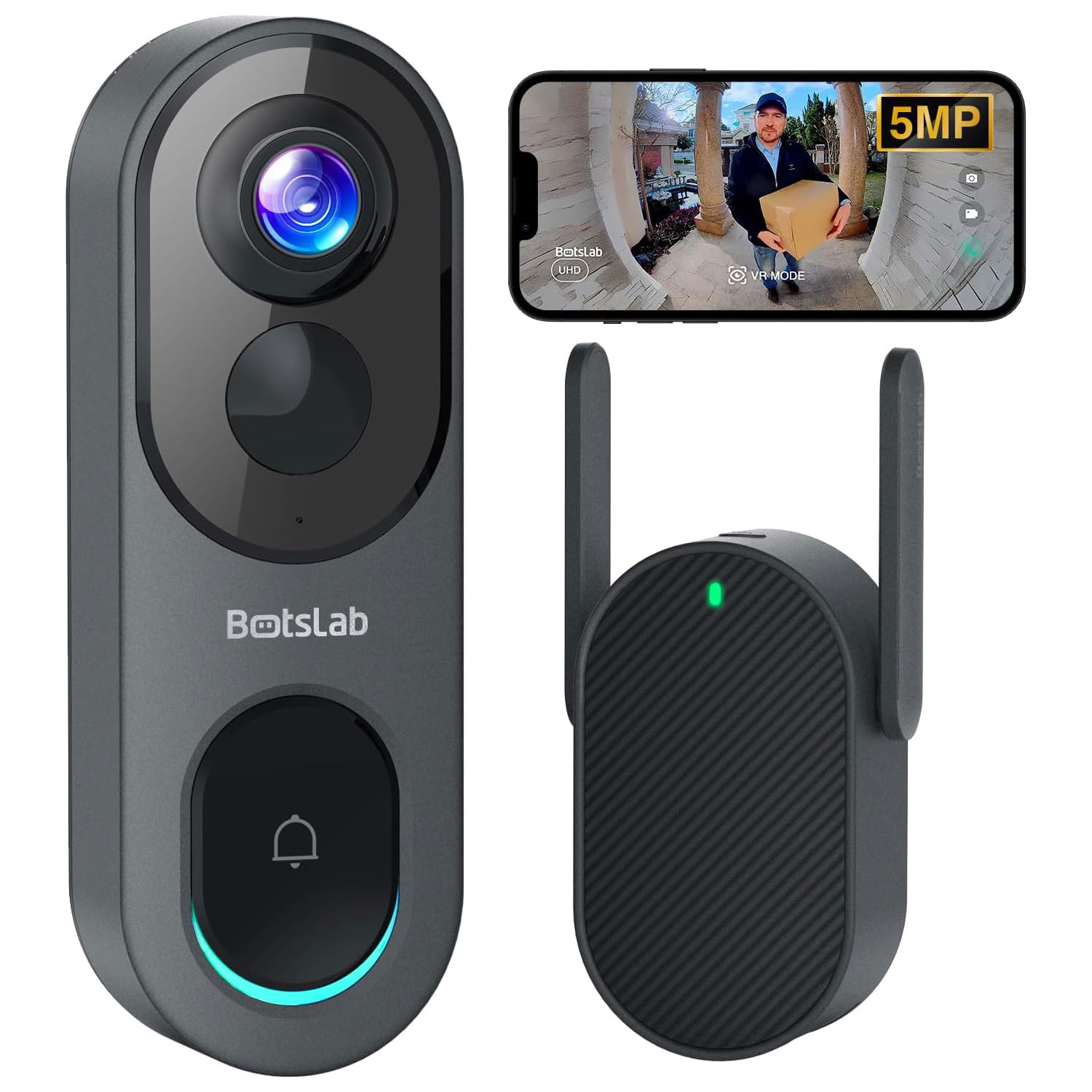
The Botslab video doorbell camera has an awful lot going for it which is reflected in the price. Not only is it easy to install but there is no associated monthly fee. It enjoys a battery life of 210 days and has a combination of radar and PIR detection that minimizes false alerts. You can even get a good view of your visitors at night thanks to the 24ft night vision range.
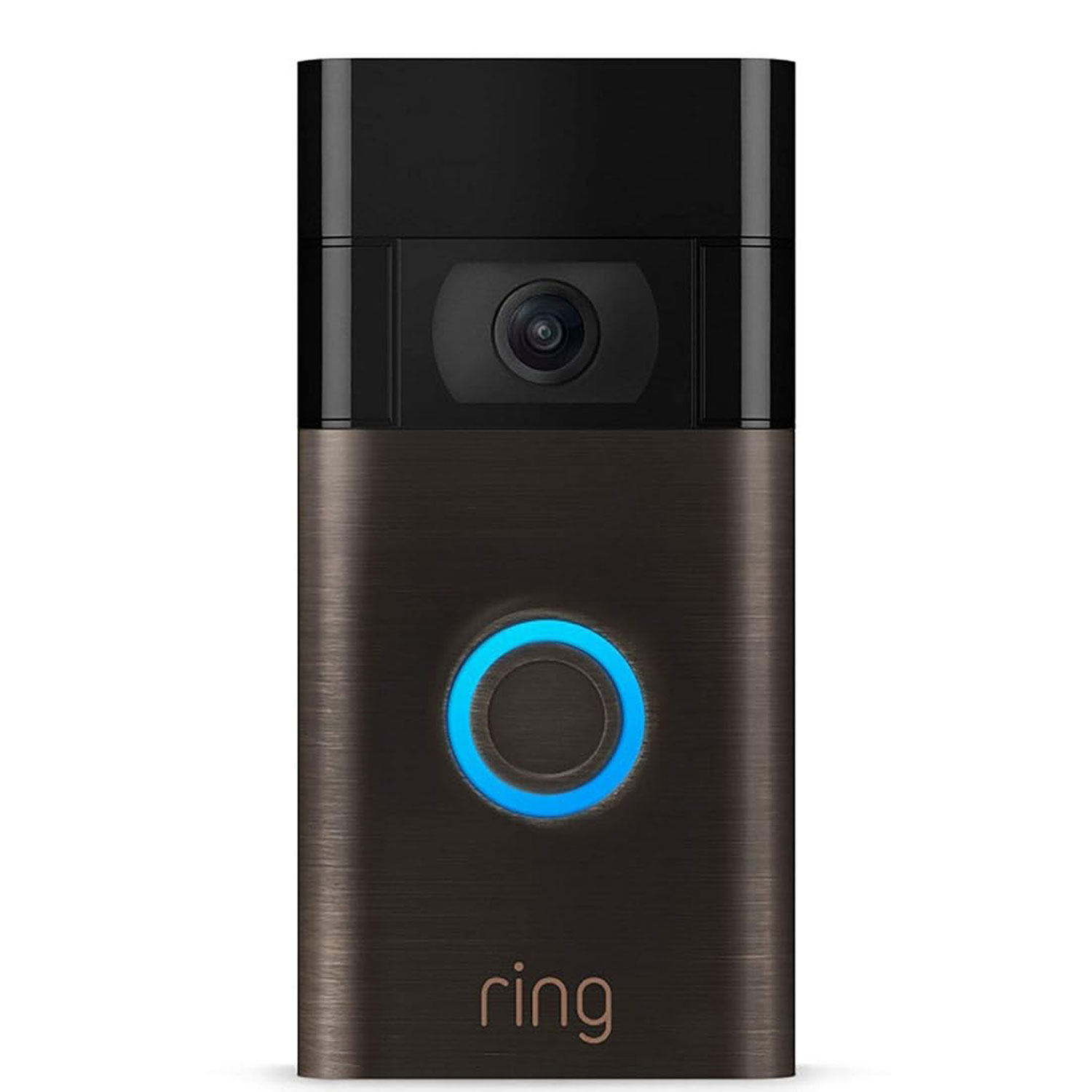
This is an update on the original Ring doorbell that has better motion detection and crisper night vision. We love that you can pair it with certain Alexa-enabled devices as it means you can have two-way conversations with whoever is at the door from a range of devices, not just your phone. You can sign up to monthly digital storage of the video footage at a small cost.
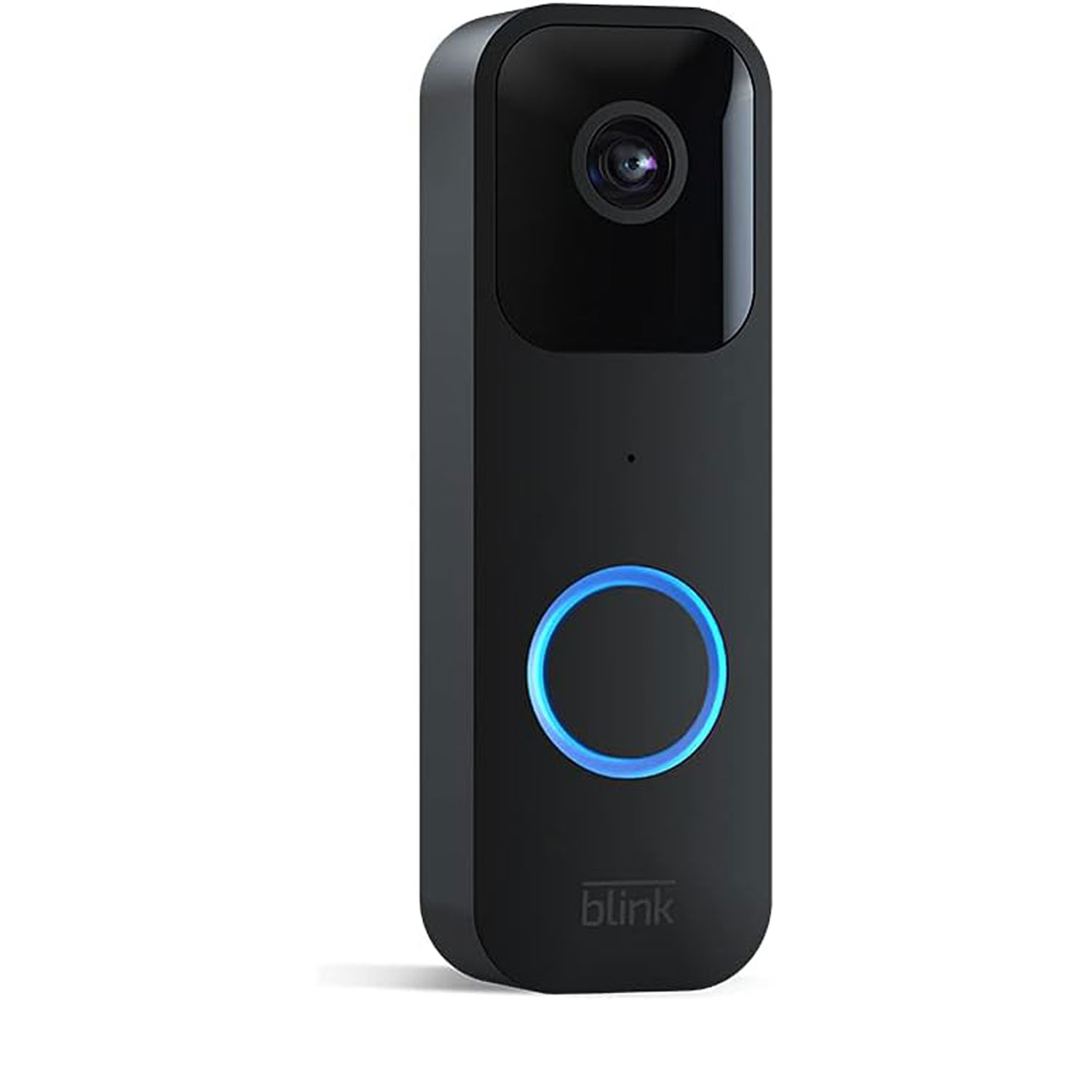
This great value video doorbell comes with everything you need to help secure your home on a tighter budget including infrared night video and two-way audio, as well as being easy-to-install. It can also be connected to your existing doorbell wiring to sound your in-home chime.
4. Create the illusion you're home
Ideally you don't want anyone to know your home is empty so looking into ways of creating the illusion that the house is occupied is a wise security move.
'Motorized blinds, or what some refer to as 'smart blinds', are a great and sometimes cheaper alternative to other home security measures as they can create the illusion that someone is home even when you're away, making it a less attractive target for potential burglars,' says Helen O'Connor, product manager at 247 Blinds.
'Motorized blinds are operated by a motorized unit that opens and closes the blinds and can also be set on a timer so that to onlookers it appears as though you are home,' explains Helen. 'The motors are extremely efficient and use minimal power to operate. They also look like regular roller or wooden blinds, so it’s very hard for anyone to tell they are electric.'
Smart lighting benefits should be considered here too.
'Home invaders will more likely be deterred by a well-lit home that gives the impression that someone is inside,' points out Tim Eskew, senior manager at IoT Partnerships at Allegion, which pioneers security technology . 'There are many smart devices that allow you to turn the lights on and off while you are out traveling. Regularly adjusting the lights will make your property appear occupied, preventing intruders from entering.'
Putting in play some extra ways to add privacy to your home will also help. Having less of the inside of your home visible from the outside will make it more of a risk for those looking to break in, therefore acting as a deterrent.
5. Design your landscaping scheme to be secure
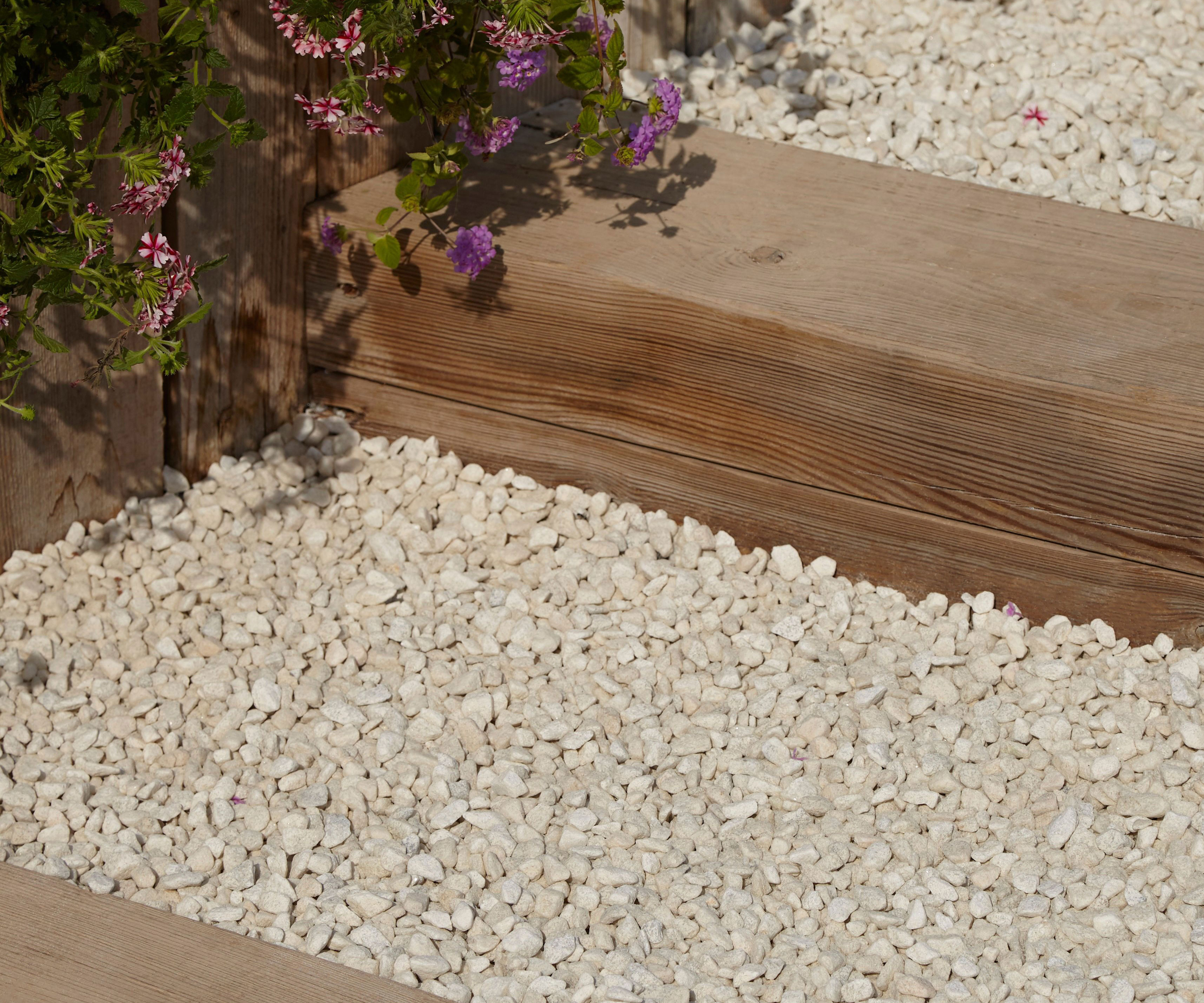
As well as fitting your home with technology, the plants and materials you choose to finish off your driveway and your back and front yard landscaping ideas can also play an important role in securing your home without technology.
'When strategically placed, trees and shrubs can act as a natural security barrier to your home and provide privacy,' explains Jeff Ketelaars. 'You can even opt to get defensive plants that naturally have spikes and thorny exteriors to deter anyone from coming on the property.
'While natural deterrents are more aesthetically pleasing than a cement wall or fence around your home, the landscaping will not be cheap. Additionally, you do not want to grow any plants that will inevitably block existing cameras that are protecting your home or that can act as a hiding place for someone to watch your home. However, even small shrubs that are strategically placed can help provide needed privacy and deter burglars from even trying to get up your property. '
Learn more about shrubs for front yards.
'To the exterior of your property review your boundaries and gates – have you got high fencing, can you use anti-climb spikes (check if these are legal in your area and put up a sign advising that they are there),' advises Julie Waite. 'Use privacy hedges and plants to make it more difficult to get in. Around your fencing grow tall spiky bushes. Upgrade your gating and keep it locked.'
Holly, such as Dwarf Burford Holly Foundation/Hedge Shrub from Lowes, is a good low-maintenance, but thoroughly spikey option.
You can also use gravel on pathways near your home as that makes more of a noise . Julie adds to make sure there are no hiding spots near your front door where someone could wait to ambush you..
6. Get yourself a dog
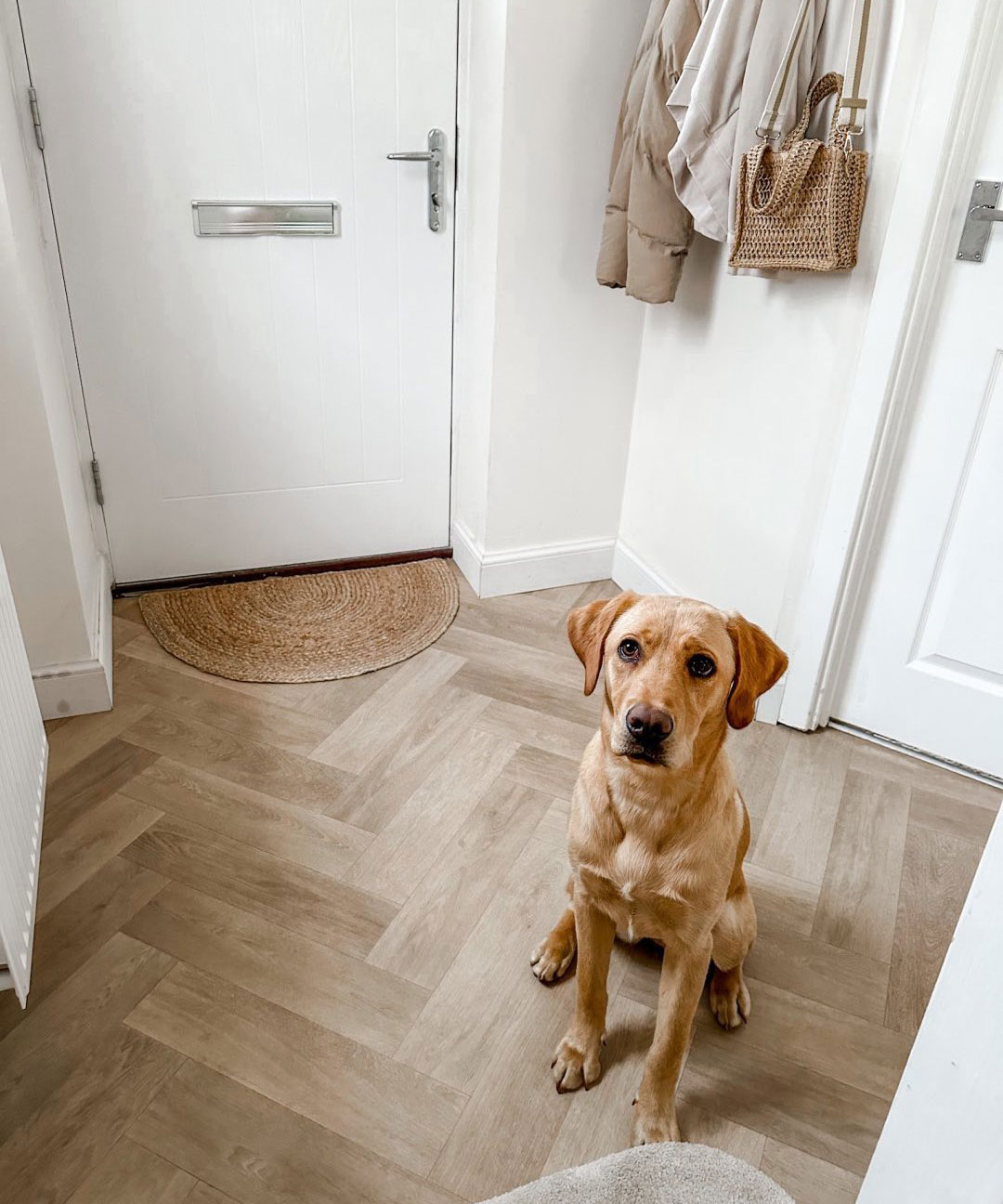
We realize that this might not always be practical for anyone who works long hours out of town or has allergies, but where dogs make up part of a household, intruders are far far less likely to break in. Not only will a loudly barking pooch alert the occupants or neighbors to a problem, most intruders won't want to risk coming face-to-face with a potentially vicious and protective animal.
"Get a dog!" agrees Julie Waite. "A well-trained dog is a great alarm and defense system. When ex-intruders were surveyed, a barking dog was one of the top things that would deter them from entering a property." Arm yourself with some pet friendly home tips to ensure your interiors stay looking stylish.
Dog not an option? How about a pretend one? The clever Barking Dog Motion Sensor from Amazon features six realistic dog barking sounds.
7. Upgrade your windows and doors
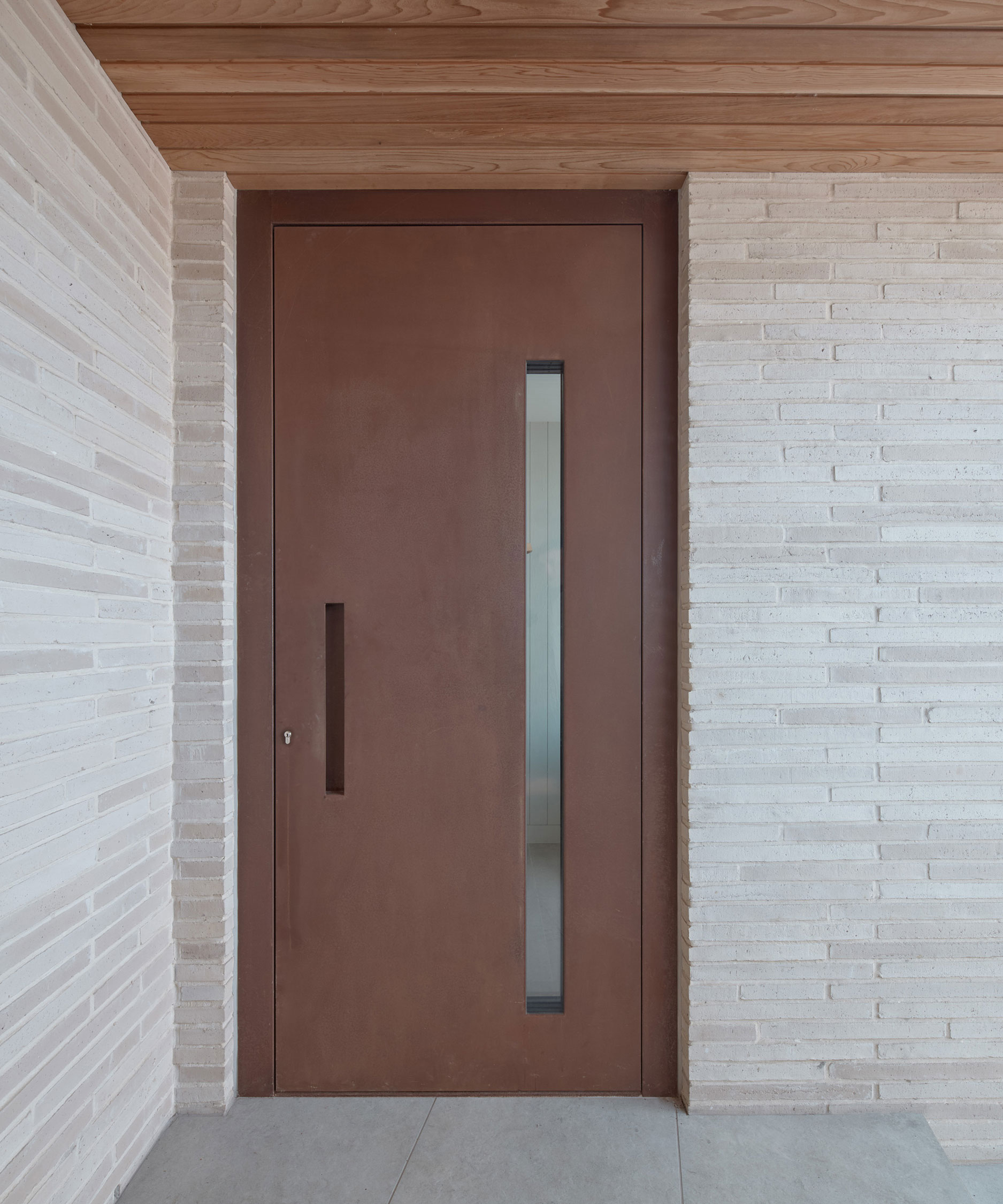
Assess your windows and doors as these are weak points when it comes to a property. Look out for signs your wooden windows need replacing and put any areas of damage right. You should also check that they all have working, modern locks.
'Get a peephole, chain and caged mailbox on the door or an external mailbox,' further advises Julie Waite. 'A simple but effective tip that is often overlooked is to install horizontal blinds to all windows and keep them down (but not closed). This makes it hard for intruders scoping out your home to see into your property and, if they do break in, the blinds make a lot of noise and make it difficult to get in quietly – especially if you have some plants and ornaments on your windowsills that could get knocked off.'
A noisy entrance into your home might well cause intruders to abandon their plan for fear of being imminently caught.
8. Fit smart locks to your external doors
Investing in some security-focused smart home must-haves is a great way to protect your home. If you didn't know about, or haven't considered smart locks before, now's the time.
'Having a smart lock installed will put your mind at ease when you're gone for days, weeks or months,' says Tim Eskew. 'With something like the Schlage Encode or Encode Plus, you can check the status of your lock from your smart phone to ensure that your doors are always securely locked.
'Smart locks can provide one-time or permanent access codes, which are useful if you have a neighbor come by every day to water your plants or if you have a loved one who drops by for a brief check-in.'
FAQs
Should homes have a panic room?
For most people, a full-on panic room is probably a little bit overkill and is, by many experts, considered somewhat of a waste of both space and money.
'Choose a room as a ‘safe room’ – ideally a room such as a bathroom with a lock on and that has an external window to escape out of instead,' suggests Julie Waite. 'You can add additional bolts to the room to fortify the door. If something does happen, you all gather in that room with a phone and call for help.'
This Thick Slide Barrel Bolt Latch from Amazon would add another level of security to an internal door.
'Discuss an emergency plan with your family – what would you do if you heard an intruder in the night?' continues Julie. 'Our advice here is to get into your safe room and call the police – don’t disturb them as you could end up in a violent altercation.'
Should I keep my valuables in a safe?
It is a great idea to invest in a home safe in which to store your most valuable belongings, but before parting with any money, make sure the product you are looking at is worth the outlay.
Look for safes that have a tool and torch resistant rating of 30 minutes or more (TL-30/TR-30). You should also pick one that would be too too heavy for anyone to pick up and run off with. Alternatively, you could secure your safe to the floor with heavy-duty bolts.
The Amazon Basics Steel Home Security Electronic Safe has an 8-gauge (thickness) steel door and 14-gauge steel body as well as two live-door bolts and pry-resistant concealed hinges.
Meet the experts

Jeff Ketelaars is a seasoned security expert with over 35 years in the industry. He founded two security agencies and established Security Conscious in 1990, a firm that offers high-quality training to security professionals. Ketelaars co-founded Security Guards Only, a networking platform for security professionals to connect and stay informed on industry developments.

Julie is a self defence, personal safety and violence prevention expert. She co-founded Streetwise Defence with Dene Josham, who has 30 years experience in security, including 15 years as bodyguard to Brad Pitt, Angelina Jolie and Russell Crowe.
If you are keen to delve more into how to prevent burglary, there are lots of other tips to consider too, such as not advertising the fact you are on holiday on social media.

Natasha has been writing about everything homes and interiors related for over 20 years and, in that time, has covered absolutely everything, from knocking down walls and digging up old floors to the latest kitchen and bathroom trends. As well as carrying out the role of Associate Content Editor for Homebuilding & Renovating for many years, she has completely renovated several old houses of her own on a DIY basis.